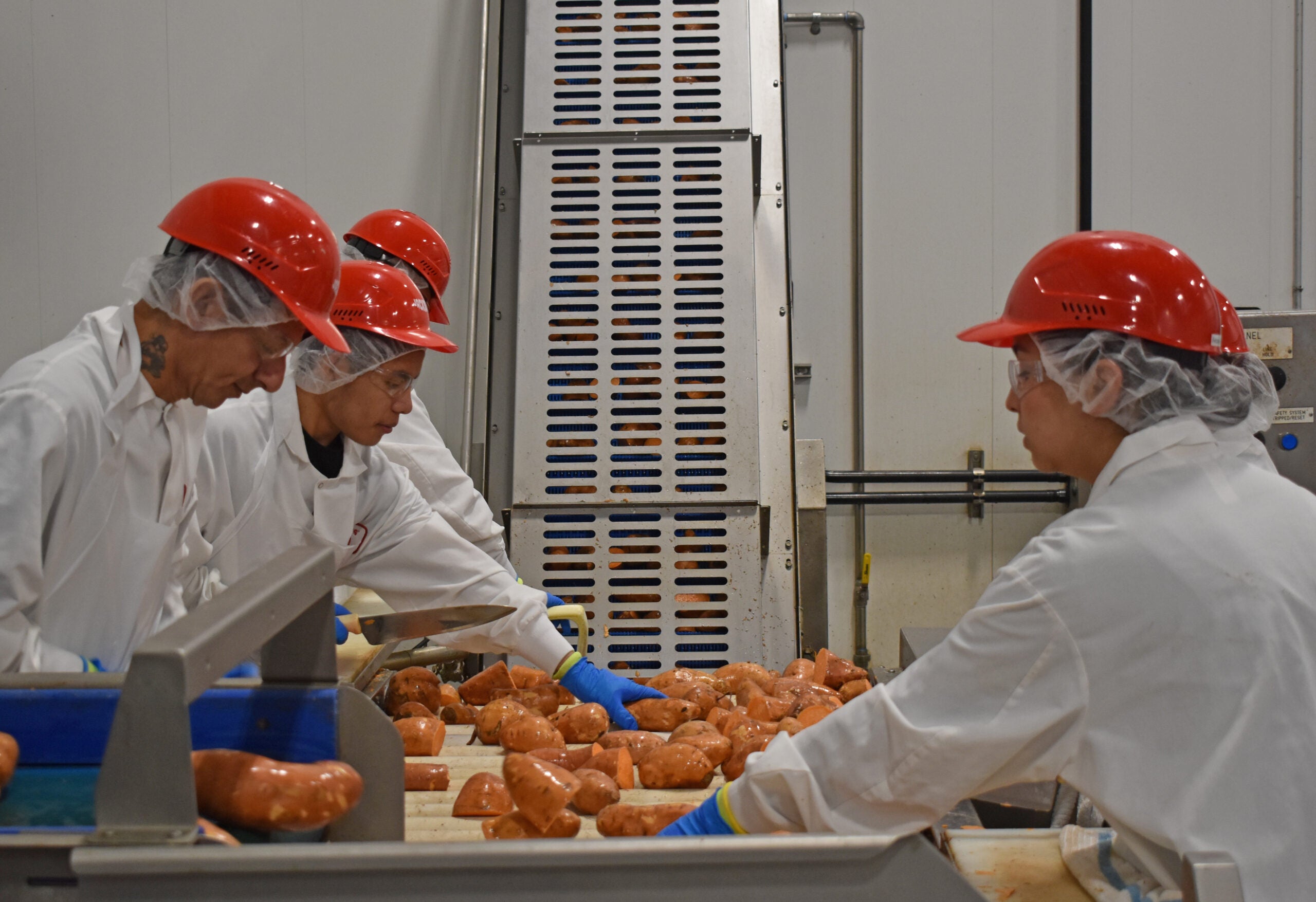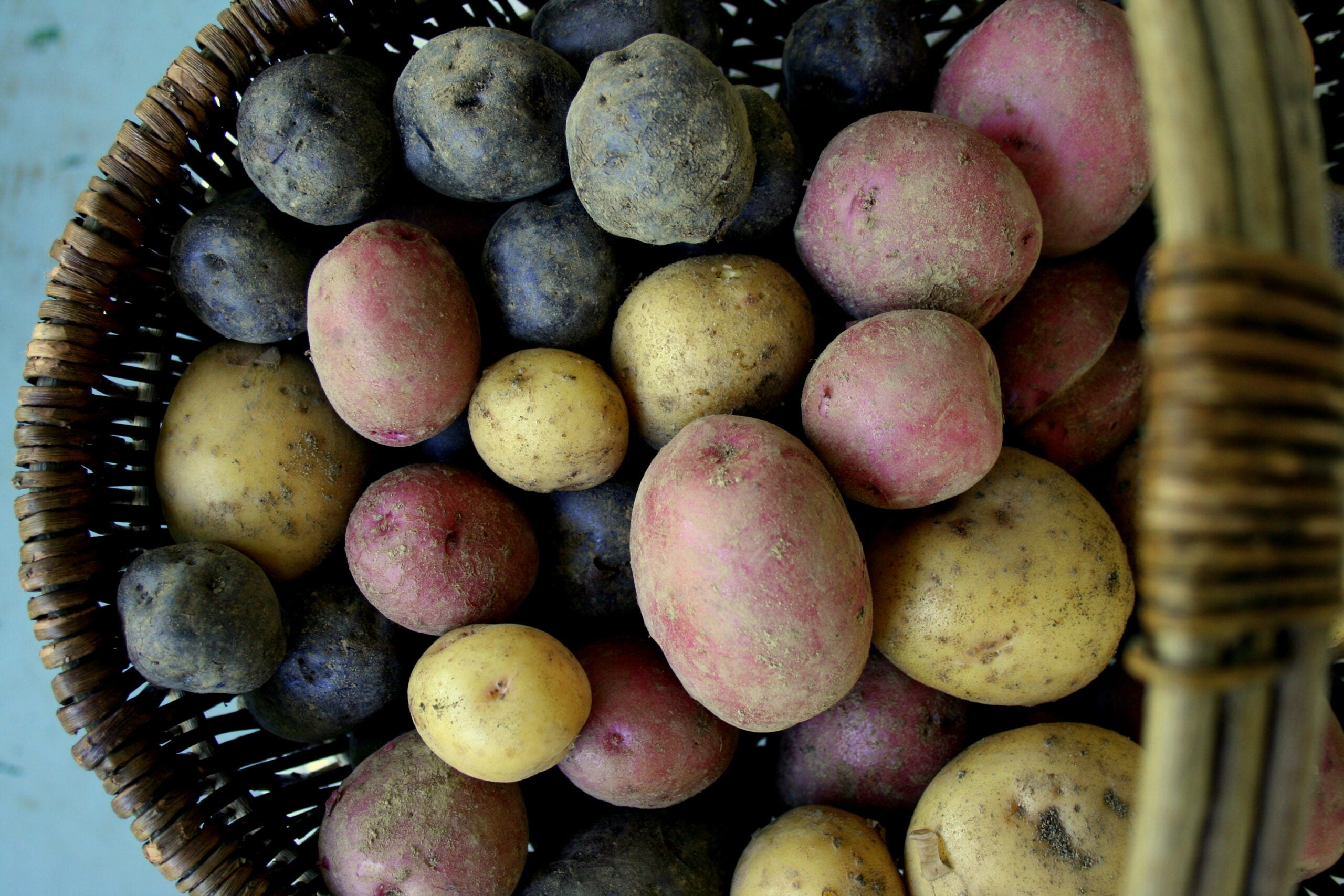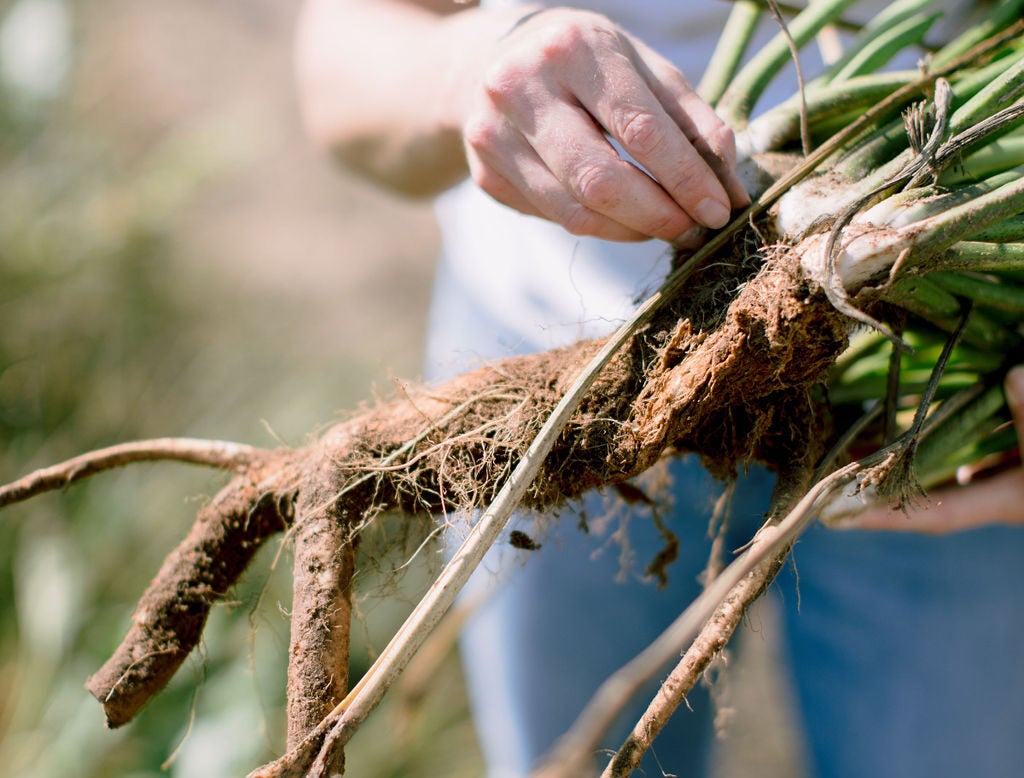Six 41,000-pound truckloads of sweet potatoes are converted into sweet potato chips within a day of being delivered to a manufacturing facility in southeast Wisconsin.
At Jackson’s Food Company’s Muskego manufacturing facility, the sweet potatoes get washed, then a small team of people chop-off the oddly-shaped portions and cut each potato in half. The potatoes move down a conveyor to a machine that thinly slices them and feeds them into a fryer filled with avocado oil.
After being kettle-cooked in the fryer, the chips are sent to a mixing tub where they’re seasoned with flavors ranging from standard sea salt to cheddar and sour cream. The seasoned chips are then weighed by a machine, and bagged.
News with a little more humanity
WPR’s “Wisconsin Today” newsletter keeps you connected to the state you love without feeling overwhelmed. No paywall. No agenda. No corporate filter.
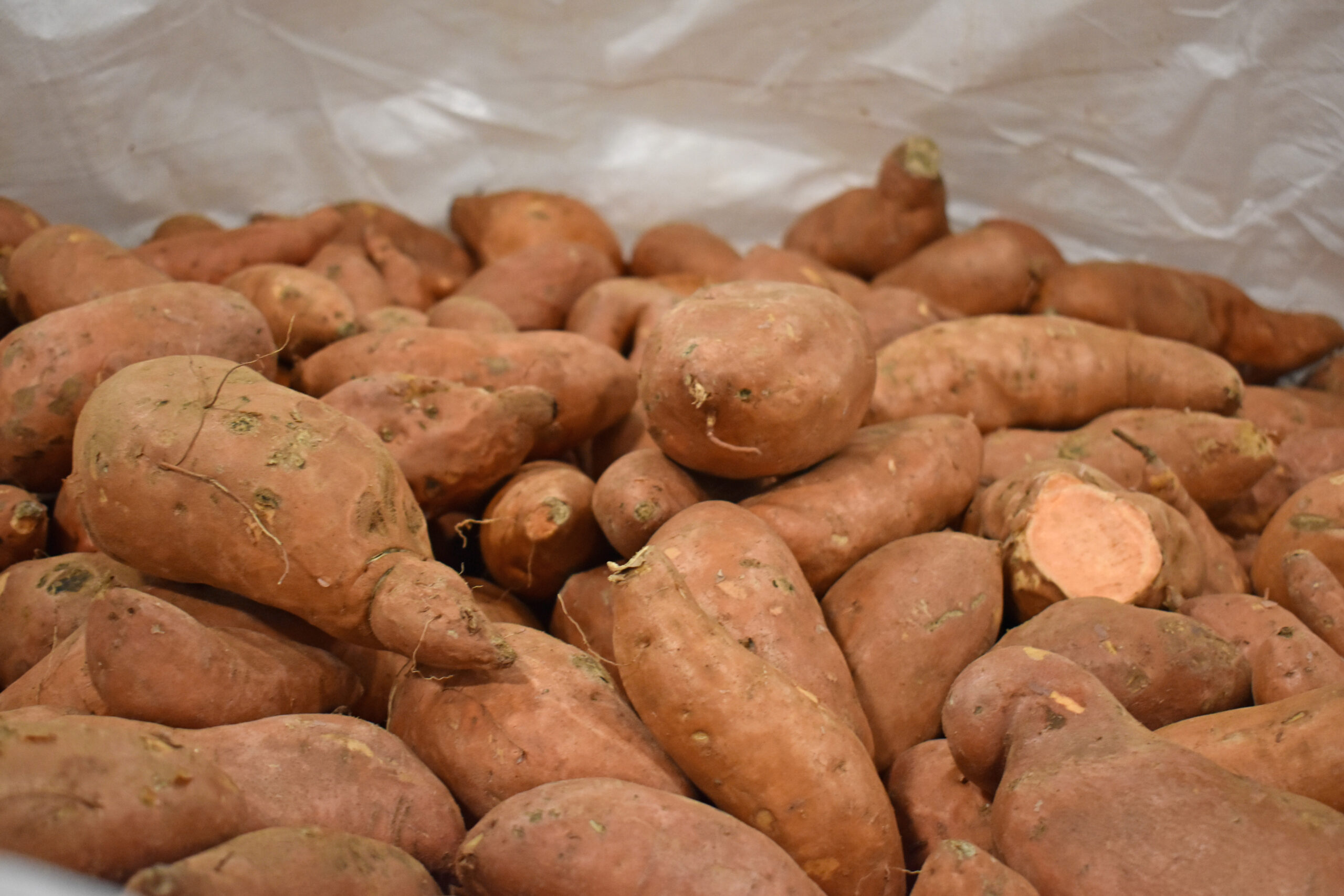
James Marino, president and CEO of Jackson’s, said turning sweet potatoes to chips as soon as possible is important for making a quality product.
“The fresher the product we use, the better the chips that we’re going to make,” said Marino. “We really embrace that.”
Jackson’s Chips, which gained national attention from the TV show “Shark Tank,” is growing its production capacity and workforce in Wisconsin.
Last year, the facility underwent a major expansion that tripled its production capacity and added 10,000 square feet of manufacturing space.
The facility currently has around 70 employees, but Marino expects that number to grow as they add a third-shift at the plant.
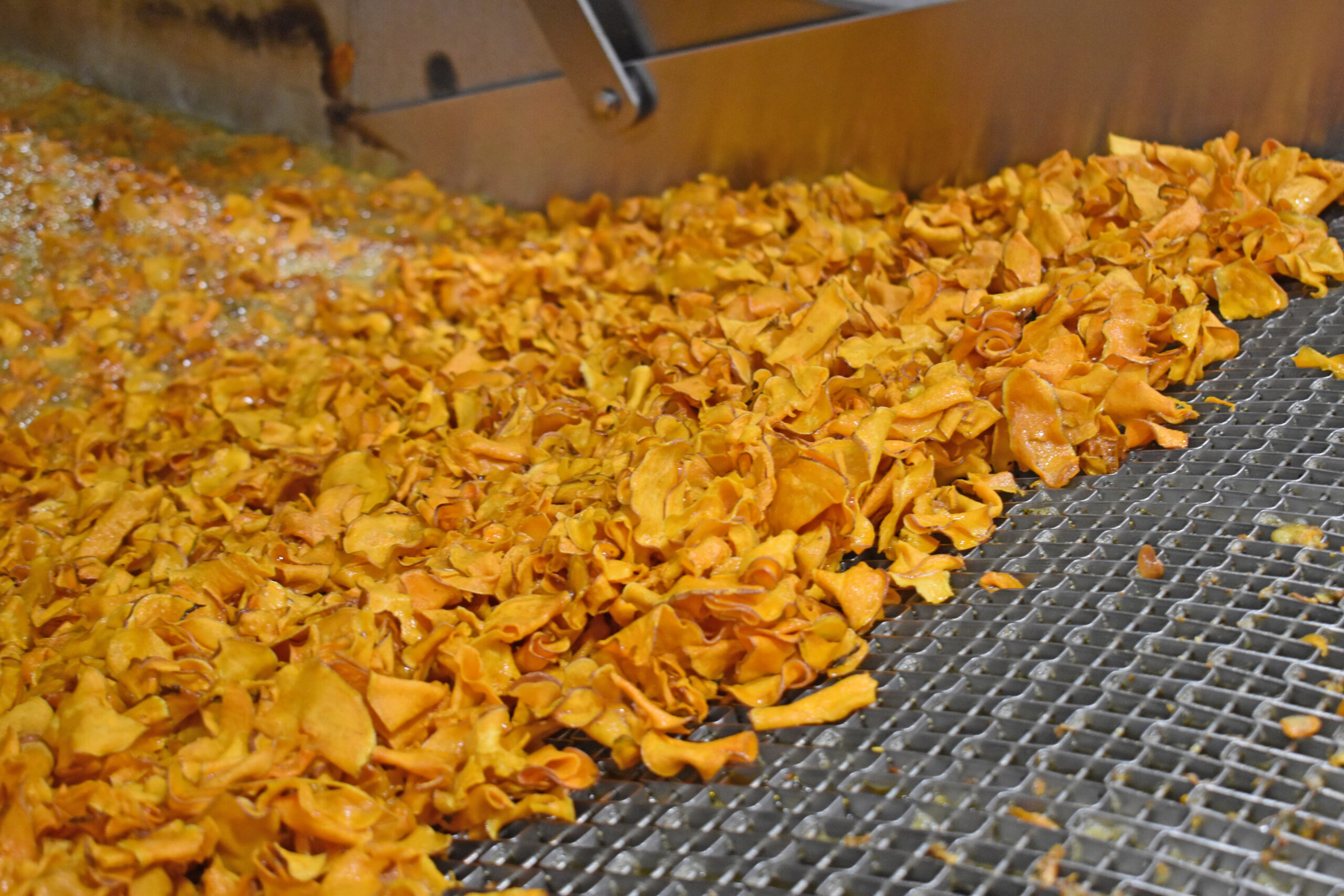
A snack free of the top 9 allergens
Around 2012, husband and wife duo Megan and Scott Reamer created a sweet potato chip — free of the top nine allergens — for their son, Jackson, who was diagnosed with a rare autoimmune disorder.
They began selling the chip at farmer’s markets and decided to commercialize their product, appearing on a 2017 episode of “Shark Tank.” Guest shark Rohan Oza offered the Reamers a deal, saying they’d invented a product that was “disrupting the food and beverage space.”
Jackson died in 2017. But the business has grown, now overseen by a group of investors that have helped the brand open its own manufacturing facility — including relocating from Colorado to Wisconsin.
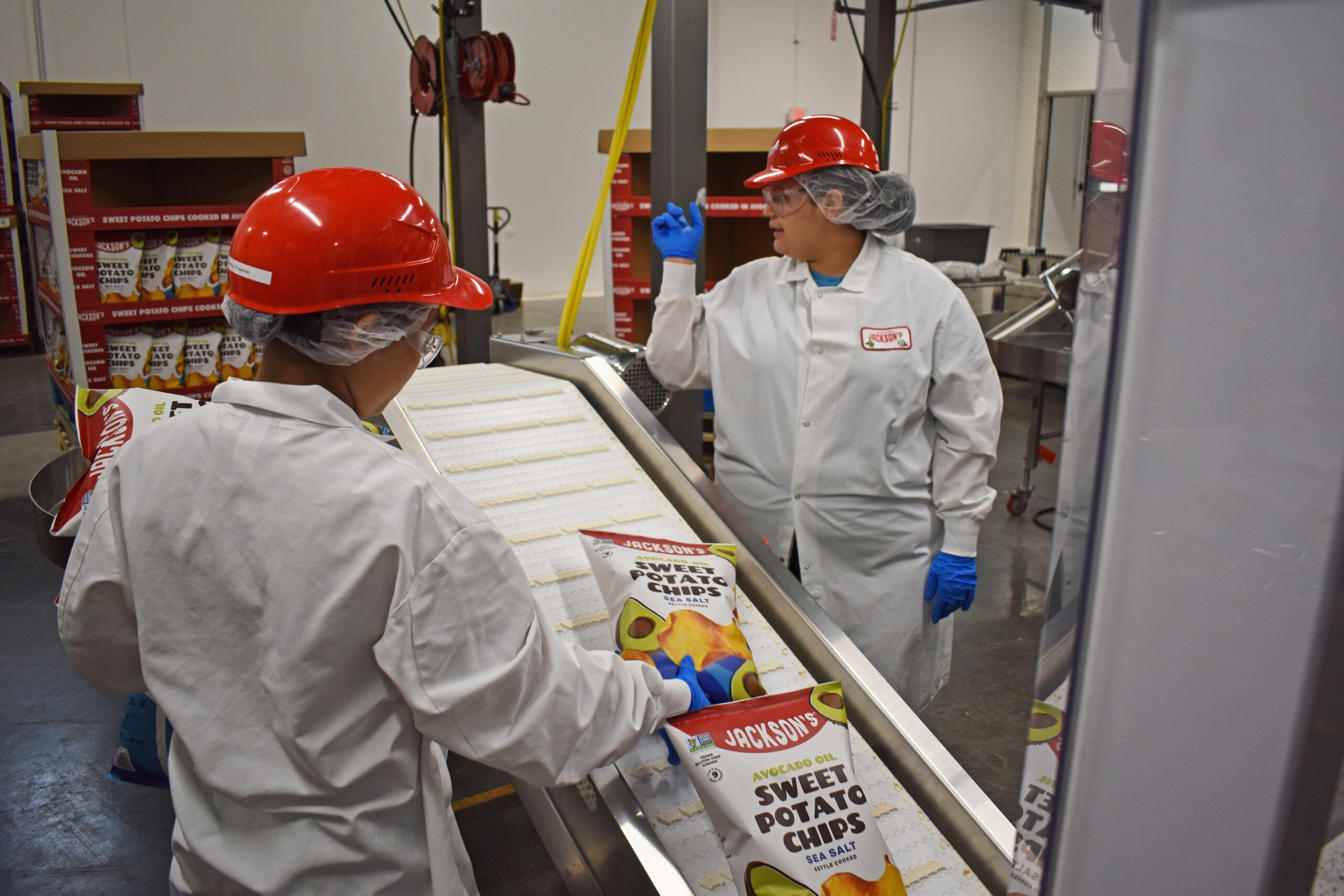
The Muskego plant opened in January 2022, helping the product gain a foothold in stores like Costco, Whole Foods, Metro Market and Sendiks. But Marino said expanding production while constrained by the COVID-19 pandemic was challenging.
“One of the reasons we’re not in even more places right now is just the fact that it was like year one with our wings clipped,” he said. “We got going in year two. We had serious momentum, but then we ran up against capacity of the original assets of the plant.”
That led to last year’s expansion, enabling the site to double its hourly production capacity and add a third shift, Marino said.
“It was about a four-month end-to-end project,” he said. “(Now), we’re finalizing our second shift and expanding into a third shift.”
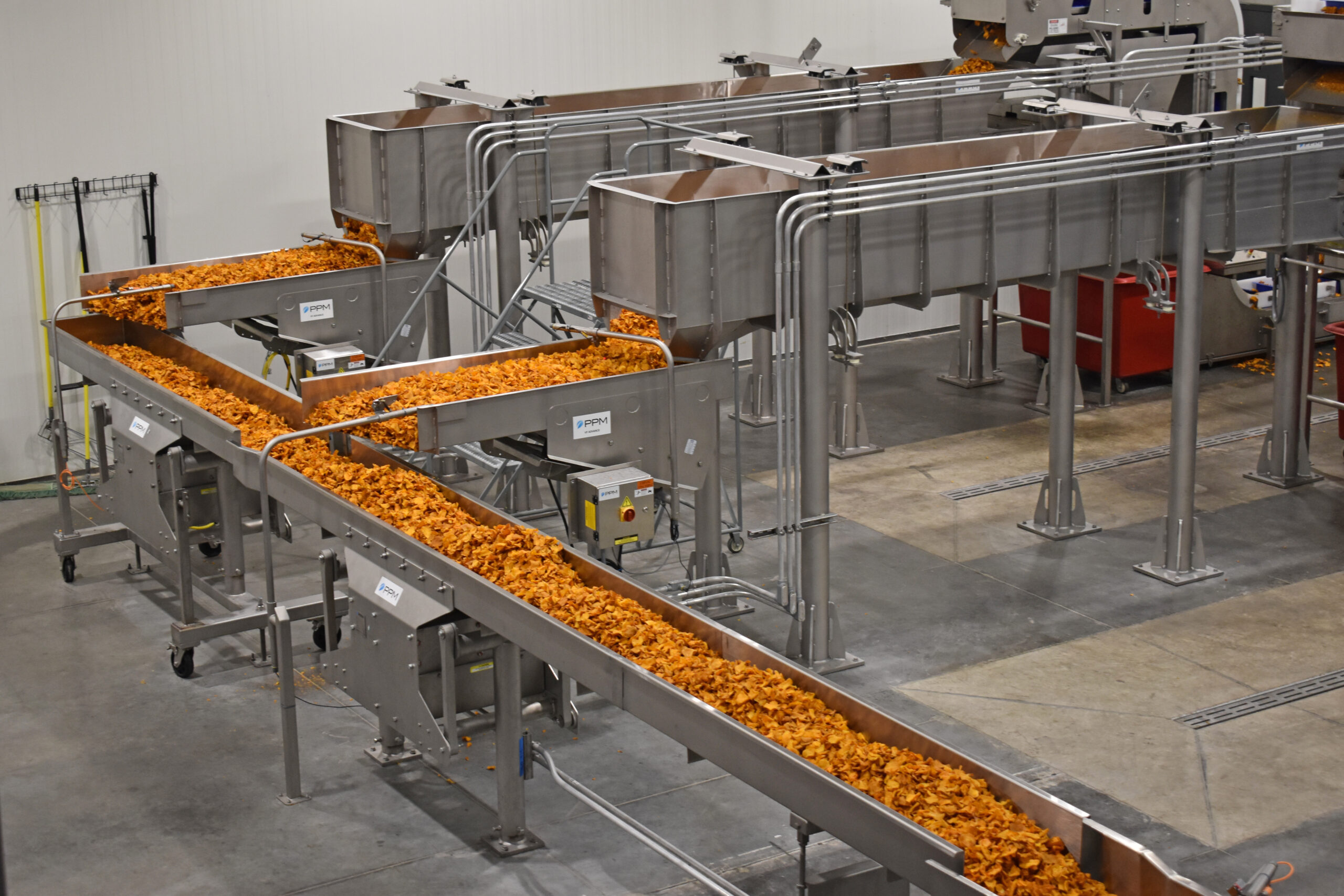
Jackson’s recently launched a new wavy chip line of their sweet potato chips. Shaped like Ruffles, Marino said the product was developed to give consumers a sweet potato chip that can be dunked in their favorite dips.
“Everything we do comes down to three things in the bag: It’s sweet potatoes, it’s avocado oil and it’s seasoning,” he said.
Beyond producing the snacks in southeast Wisconsin, Jackson’s recently worked out a deal to repurpose its food waste, according to Luca Martino, the company’s vice president of operations.
Martino said the chips will be donated to a farm in Fond du Lac, where they will be put into a biodigester to be converted into natural gas and natural fertilizer.
“What’s really exciting is Wisconsin is going to be the site of the first one in the Midwest,” he said. “It’s a win for the environment, it’s a win for the farmer and it’s a win for us because our costs will actually be reduced by doing this.”
Wisconsin Public Radio, © Copyright 2025, Board of Regents of the University of Wisconsin System and Wisconsin Educational Communications Board.

